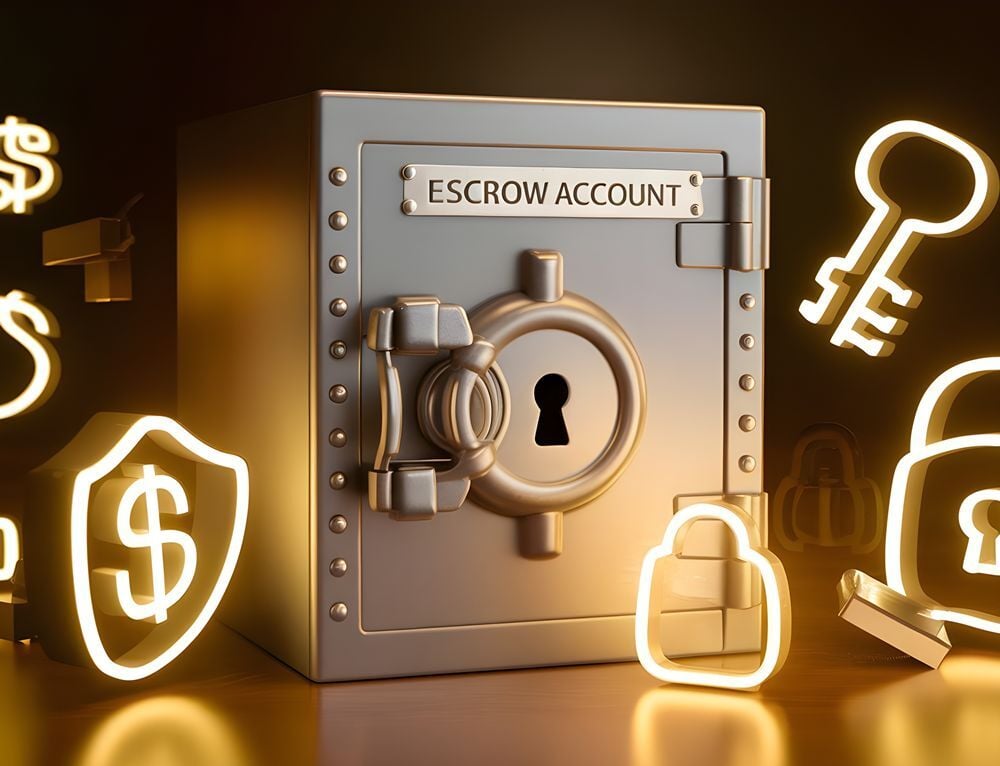What Is Escrow on a Home Loan? A 2025 Guide for Homebuyers
June 10, 2025

If you're in the process of buying a home or refinancing your mortgage, you’ve probably come across the term “escrow” more than once. It might sound complicated, but escrow is a simple—and incredibly useful—part of the home loan process. It helps protect all parties involved in a real estate transaction and ensures that important payments, like property taxes and homeowners insurance, are made on time.
In this guide, we’ll break down what escrow is, how it works, and why it’s important when you're dealing with a home loan in 2025.
What Is Escrow?
Escrow is a legal arrangement where a neutral third party temporarily holds money or assets on behalf of both parties involved in a transaction until certain conditions are met.
In real estate, escrow plays a key role at two different times:
1. During the home purchase process: Escrow holds funds—such as your earnest money deposit—while the buyer and seller complete all the steps required to close the deal.
2. After closing on a home loan: Escrow is used by your mortgage lender to manage ongoing expenses like property taxes and homeowners insurance.
For now, let’s focus on the second kind: escrow as part of your home loan.
How Does Escrow Work With a Mortgage?
When you take out a home loan, your lender might set up an escrow account to collect and manage payments for property-related expenses. Here’s how it works:
● Each month, your mortgage payment includes principal, interest, and an escrow portion.
● The escrow portion covers annual property taxes, homeowners' insurance premiums, and sometimes flood insurance or private mortgage insurance (PMI).
● Your lender holds these escrow funds in a special account and pays those bills on your behalf when they come due.
For example, if your annual property taxes are $6,000 and your homeowners insurance is $1,200, your lender will divide that $7,200 into monthly payments of $600. That $600 is added to your mortgage payment and held in escrow.
Why Do Lenders Use Escrow Accounts?
Lenders want to protect their investment—and yours. If you fail to pay your property taxes or insurance, it could result in a tax lien or uncovered damages to the home, both of which put the property (and the lender’s collateral) at risk.
By managing these payments through escrow, the lender ensures they’re always paid on time, reducing risk for everyone involved.
Is an Escrow Account Required?
In many cases, yes. If your down payment is less than 20%, most lenders require an escrow account as part of your loan agreement. This is especially common with FHA, VA, and USDA loans.
If you have significant equity in your home—typically more than 20%—some lenders allow you to pay your taxes and insurance independently, without an escrow account. However, this option varies by lender and might come with more fees or a higher interest rate.
What’s an Escrow Analysis?
Every year, your lender will perform an escrow analysis to ensure you’re contributing the right amount. Property taxes and insurance premiums can change annually, so your lender will adjust your monthly escrow payments accordingly.
If there’s a shortage, you may need to make a one-time payment or see your monthly payment go up. But if there’s a surplus, you might get a refund or see your payments decrease slightly.
Pros of Having an Escrow Account
● Convenience: You don’t have to worry about saving for big, once-a-year payments.
● On-time payments: Your lender makes sure taxes and insurance costs are paid on time.
● Budgeting help: Fixed monthly payments make it easier to manage your finances.
● Required by lenders: Often necessary for loan approval if your down payment is under 20%.
Escrow on a home loan is designed to make homeownership more manageable and less stressful. While it might feel like “one more thing” to understand, it’s a helpful safeguard—ensuring that your taxes and insurance are paid on time, every time.
If you're considering buying a home or refinancing in 2025, don’t be intimidated by escrow. Talk to your lender, ask questions, and make sure you understand how your payments are structured. With a solid understanding of escrow, you’ll be more prepared to handle your home loan like a pro—and stay financially protected in the long run.
